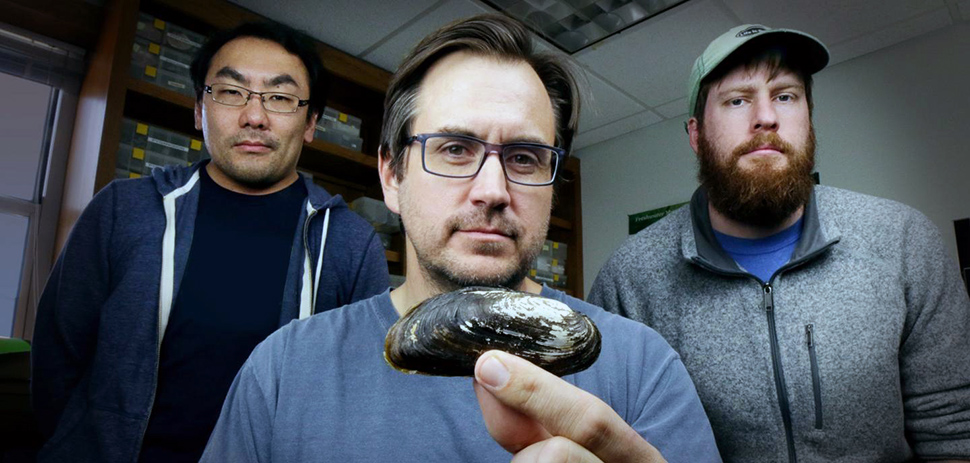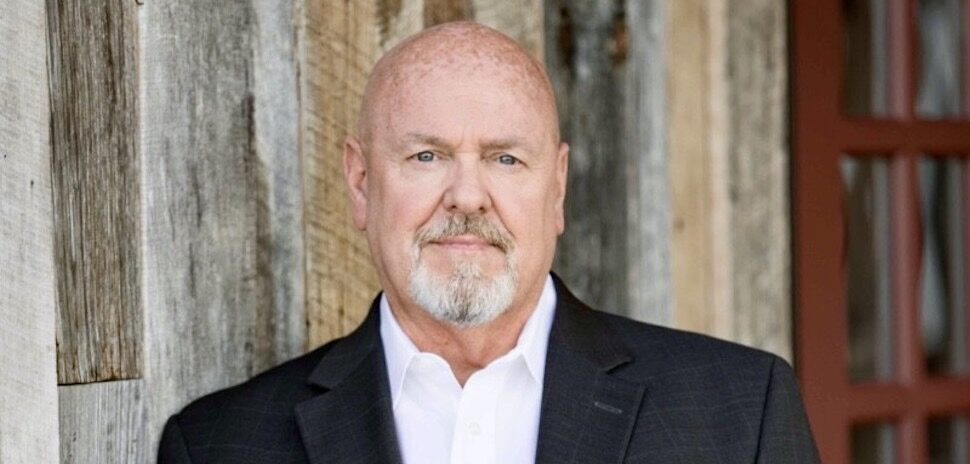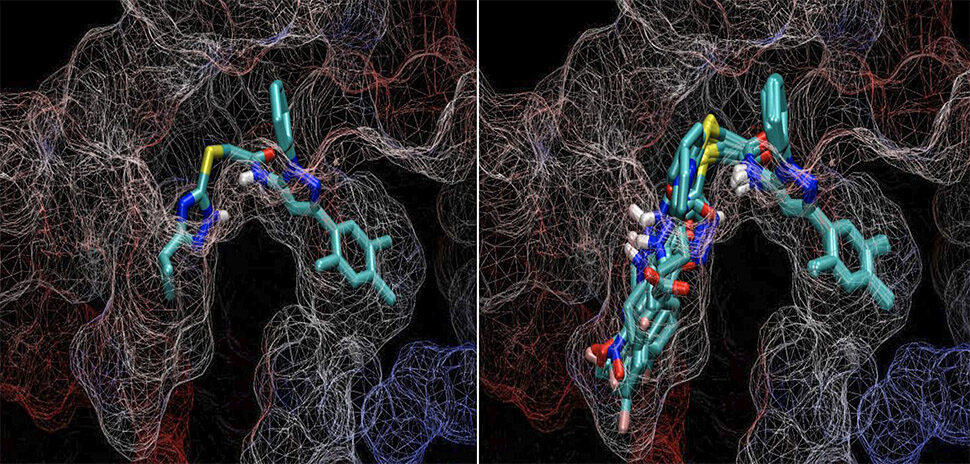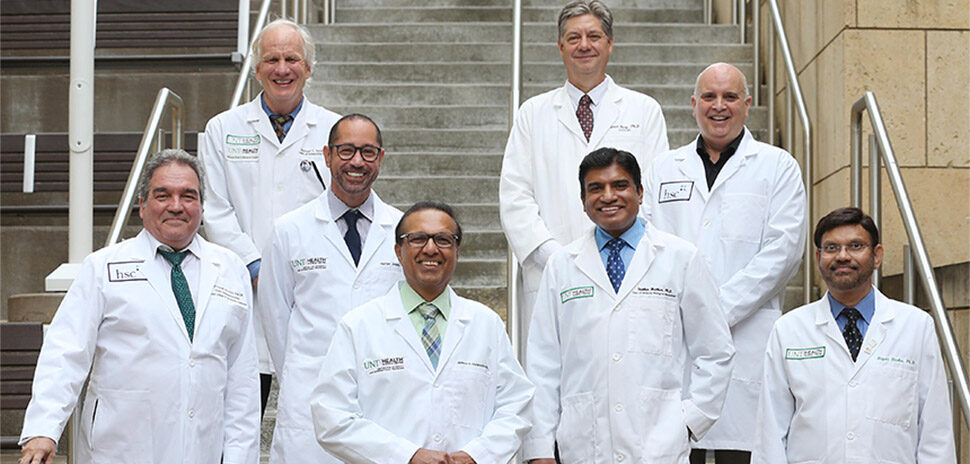SCIENTISTS’ RESEARCH AIMS TO PROTECT, AID TEXAS MUSSEL SPECIES RECOVER
A Dallas researcher is leading a team of Texas A&M AgriLife scientists working to better understand the ecology and taxonomy of the Texas hornshell mussel.
This month, the creature became the first among 15 state-threatened freshwater species to receive federal protection under the U.S. Endangered Species Act.
“Hornshells’ decline is related to changes in freshwater quality and quantity; that much we know.”
Dr. Charles Randklev
Dr. Charles Randklev of Dallas and his team is working alongside collaborators from Laredo Community College and the Illinois Natural History Survey. The team’s goal is aid in the protection and recovery of the species by identifying contributing factors to the mussel’s decline and to provide data to the U.S. Fish and Wildlife Service and the Texas Parks and Wildlife Department.
“Hornshells’ decline is related to changes in freshwater quality and quantity; that much we know,” Randklev said in a release. “Ultimately, our studies and others will be used in an overarching effort to protect existing populations and hopefully reverse their decline.”
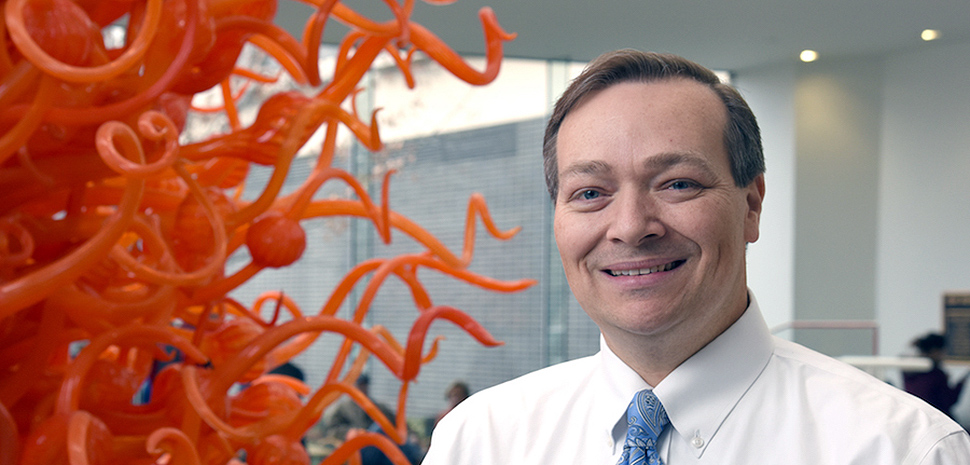
Dr. Larry Anderson is site investigator for a clinical trial on the cutting-edge CAR-T therapy to multiple myeloma patients. [Photo courtesy of UT Southwestern]
UT SOUTHWESTERN NEEDS MULTIPLE MYELOMA PATIENTS FOR CLINICAL TRIAL
UT Southwestern Medical Center is one of nine institutions in the nation that is enrolling multiple myeloma patients for a clinical trial of the CAR-T therapy for cancer.
Multiple myeloma is a blood cancer that involves plasma cells, a type of white blood cell that is a part of the immune system.
Called the “living drug,” CAR-T therapy is an innovative immunotherapy that uses a genetically re-engineered version of the patient’s own T cells in the fight against cancer.
“These are patients who either did not respond to traditional treatments or who relapsed at least twice.”
Dr. Larry Anderson
“It’s thrilling to be part of this pioneering effort using a genetically modified version of the patient’s own T cells to fight their cancer,” site investigator Dr. Larry Anderson said in a release. Anderson is associate professor of internal medicine with UT Southwestern’s Simmons Cancer Center.
“We are very excited to be pioneering this promising treatment for multiple myeloma in this region,” Anderson said. “These are patients who either did not respond to traditional treatments or who relapsed at least twice. It is gratifying to be able to offer this next step, which offer such hope.
Patients with multiple myeloma who are interested in participating in the trial can call 214-645-4673 and ask for Julie Zuckerman, UT Southwestern said.
To read about how a CAR-T trial helped save UT Southwestern cancer researcher Dr. Woodring Wright’s life, go here.
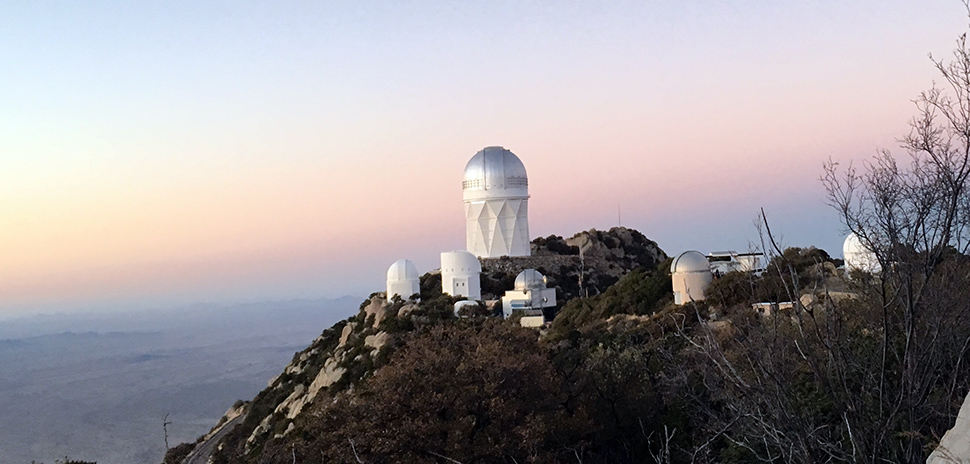
The Kitt Peak National Observatory in Arizona. [Photo courtesy of SMU]
SMU SCIENTISTS TO HELP MAP THE UNIVERSE IN 3-D
Physicists from Southern Methodist University are working as part of a consortium to help create the largest 3-D map ever made of the universe.
According to a release, the map will evolve from data gathered by the Dark Energy Spectroscopic Instrument that is being installed on the Nicholas U. Mayall Telescope, which is inside a 14-story, 500-ton dome that sits atop a mile-high peak at the National Science Foundation’s Kitt Peak National Observatory in Arizona.
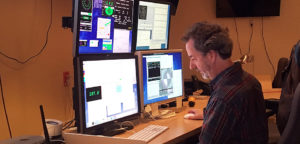
SMU physicist Robert Kehoe. [Photo courtesy of SMU}
Here’s how the survey will work:
Known as DESI, the instrument will capture roughly 10 times more data than a previous space survey by using an array of 5,000 swiveling robots, each of which will be choreographed to point a fiber-optics cable at a preprogrammed sequence of deep-space objects — including millions of quasars and galaxies. Quasars are galaxies that contain massive, actively feeding black holes, SMU said.
“DESI will provide the first precise measures of the expansion history of the universe covering approximately the last 10 billion years,” SMU physicist Robert Kehoe said in a release. “This is the most of the 13 billion-year age of the universe, and it encompassed a critical period in which the universe went from being matter-dominated to dark-energy dominated.”
Find out more about the research here.
IN OTHER RESEARCH NEWS …
St. Jude Children’s Research Hospital in Memphis, Tennessee will build a $412 million research center replete with futuristic, glass-walled laboratories and sit in open-space areas. Jacobs, the Dallas-based engineering and technical support firm, has been working with the Memphis architecture firm The Crump Firm, on the center’s design. According to the Memphis Commercial Appeal, the center open-space design will allow scientists to share ideas and discoveries more easily. The 625,000-square-foot center is part of a $1 billion capital expansion the hospital announced two years ago.
The University of Texas at Dallas is part of a consortium of researchers led by Purdue University that has been awarded $2.5 million in funding to look into new materials that would enable novel computing and storage technology. The funds were awarded by the U.S. Commerce Department’s National Institute of Standards and Technology to the NEW LIMITS, which stands for NEW materials for Logic, Memory, and InTerconnectS. Find out more here.
READ NEXT
Discovery: Sway, TCU Partner on Sports Performance Research & UTA Gets $3.3M for Heart Study
Discovery: New Hope For Extending Brain Function, UTD Testing Unique Education Method for Physics
Discovery: REHEAL Glove Aids Healing, UNT Team Creates Revolutionary Material
Discovery: New Tech to Battle Heart Failure, Crystals Behave Unexpectedly Under Heat
![]()
Get on the list.
Sign up to keep your eye on what’s new and next in Dallas-Fort Worth, every day.










